While reading through a WIRED article I found an interesting video below. Take a few minutes to check it out.
(note* the above video has been removed. You can view it here )
So does anyone feel threatened by this type of technology? I’m going to assume no. I don’t really feel that threatened by this specific set up.
So what if there was software that allowed an Art Director to plug in various scenarios, character descriptions, art techniques, color schemes, and even several specific artist’s styles, and after taking in all these influences, data, stylistic patterns etc it produced a novel image incorporating said inputs? And it looked like crap. Five years later it looked a bit less like crap. Then it started looking kind of badass 15 years later. On top of all that it’s a fraction of the cost required to hire an artist for the job. Even if the Art Director loves you what if the publishing company has to do what it can to cut corners and save money. It’s bad enough the field is as competitive as it is already.
So let’s wrap our head around what seems to be happening with our technology. In a phrase, it’s getting better. The first cars broke down often leaving the owner’s of the car on the side of the road constantly cranking their cars and changing it’s tires not unlike an newborn baby. I’m sure people on horse drawn carriages would roll by shaking their heads. And then cars got better. They grew up. Then the methodology for building better cars got better, more stream lined and fully automated. A “Lights Out” factory.
Well, it takes a long time for things to improve right? And besides technology often destroys jobs but technology also creates jobs maintaining a balance in employment. This appears to be true. However, that kind of depends on the rate that technology is creating and destroying jobs. If emerging technologies are making jobs obsolete at a faster rate than they are being created then eventually there’s is going to be an imbalance in unemployment due to technology.
“We are being afflicted with a new disease of which some readers may not yet have heard the name, but of which they will hear a great deal in the years to come–namely, technological unemployment. This means unemployment due to our discovery of means of economising the use of labour outrunning the pace at which we can find new uses for labour.” ~John Maynard Keynes
So how fast is computing power and technology advancing? I’d like to introduce you to Exponential Growth. Exponential growth can be a hard concept to grasp if you’re hearing about it for the first time. Even if you are familiar with it it’s highly unpredictable. Not only is it advancing at an exponential rate, but the rate at which technology is doubling is also accelerating. So what used to double every other year is now doubling every year and a half.
“When something doubles at a regular pace, we say that it grows geometrically, or exponentially.* To illustrate the extraordinary acceleration that this implies, imagine starting with a penny and then doubling the amount you have every day for a month. You begin with one cent; on the second day you have two cents and then four cents on the third day, and so on.
The first chart on the next page shows the first fifteen days as our penny doubles. You can see that we start out very slowly and then begin to accelerate. On day fifteen, we have about $164—which is not bad at all since we started with only a penny!
In our next chart, we look at days 15-30. Now we’ve had to greatly expand the scale of our bar chart so we can accommodate some very big numbers toward the end. You can see that we start where we left off with $164, but now this amount is so tiny against our new scale that we don’t even see a visible bar. We have to wait until day 22 before we see a hint of progress—but still that amount represents nearly 21 thousand dollars.
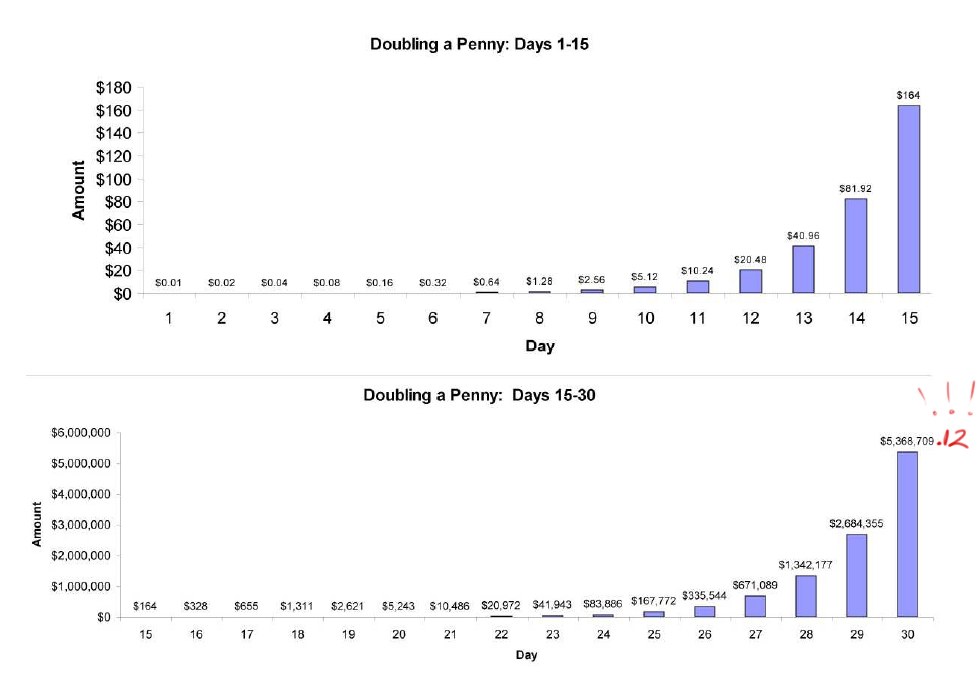 |
| “I’m rich bitch!!!”~ Dave Chapelle Show |
Things really start to fly from there. We pass the million-dollar mark at day 28 and end up on day 30 with over five million dollars. Not bad for a month’s work. If we had been lucky enough to choose a month with 31 days for our experiment, we would have nearly eleven million dollars to show for it. If we could continue the process for another thirty days, we would have an astonishing $5,764,607,523,034,235—or nearly six quadrillion dollars!”
~ Martin Ford’s “The Lights in the Tunnel“
Another comparison is taking 30 linear steps. Equaling…30 steps. There you are. I see you. 30 steps. So far so good. So what about 30 exponential steps? How far does that take us?
“To the Moon. And back. And I still have enough steps to circle the Earth…eight times over.”~Federico Pistono TEDx Talk “Robots Will Steal Your Job, But that’s ok“
Or if you’re into Jason Silva “take 30 exponential steps 2,4,8,16, thirty steps later and your at a Billion!” Ehh, close enough Jason. We know what you mean. I do like his energy though. So where are we now? How many doublings have already happened?
“It’s in the second half of the chessboard that that constant doubling yields numbers so big that our intuition falls apart, that prior experience falls apart.
So when we were writing our book, we did just a quick back-of-the-envelope calculation. The U.S. started tracking computers as an investment category in 1958, and the standard period for doubling of computer power is 18 months. You do a little bit of math, and that quick estimate tells you that we entered the second half of the chessboard in about 2006 with computers, which helps me understand why we’ve got Google cars and Siri and Watson and all these robots coming at us just in the past few years. If this analogy holds up at all, the only real conclusion is we ain’t seen nothing yet.”
~ Adrew McAffee, author of “Race Against the Machine” on NPR
So will advanced AI and automation make artists obsolete? That still seems highly unlikely doesn’t it? Even if they could do everything we could and better there seems to be something inherently fulfilling about being creative and getting better at artistic endeavors and expressing ourselves. But we’re all artists here. And in order for us to make a living other people have to buy our products and pay for our services. In order for other people to buy the book with our image on the cover, our calender, prints, original artwork, everything that we have to sell in order to make a living, they too need jobs.
How is exponential growth and increasing automation affecting all the people who surround and support us? The people with manufacturing jobs, writers, taxi/truck drivers, fruit pickers, doctors, Jeopardy Champs, educators, lawyers, pathologists, pharmacists, etc etc etc. Notice that it’s not just cashiers and bank tellers anymore. And of course the farmers before them of which 80% of the population used to be employed as. Now a mere 2% provide more than enough food for everyone else. The technologies are moving deeper into the job market and becoming increasingly more sufficient at more complex jobs. And as technology advances prices tend to drop dramatically as well. That’s why many people have a phone in their pocket that is a million times smaller and a million times cheaper and a thousand times more powerful than the first computers which could fill up a room and would cost millions of dollars.
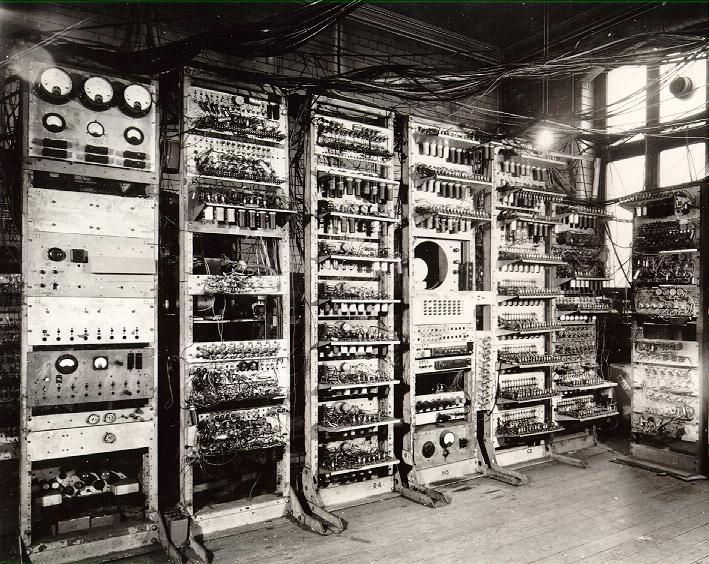 |
| “Can you hear me now? This doesn’t quite fit in my pocket.” |
So when it becomes more profitable and more efficient and more productive not to mention more safe (Mars is cool. But I do not want to be in the first ship there. Thank you Curiosity) to use automation than humans that appears to be exactly what happens.
For job security we could quit making art and all be robotics and automation engineers. But wouldn’t that just exacerbate the problem? As more jobs and career paths become obsolete will that funnel upcoming students to enter the field robotics and AI? What I am curious about is at what point of amazingly high productivity and perhaps increasing unemployment is a major conversation going to be had about our relationship to our “jobs”. If automation ends up doing most of what people used to do should we continue to force people to try and find jobs and work eight hour days and more to survive? Without jobs who’s going to buy all of the things that the robots are producing? What will the labor market look like as exponential growth continues to move beyond the 30th step? At one point people working 16 hours was the norm. Over time, and with much effort, it was reduced to twelve hours, then ten, now we have an eight hour work day. What may this trend imply? I recently learned that:
“Much to the surprise of the country, The Senate passed the Black Bill on April 6, 1933, by a vote of 53 to 30, mandating a 30-hour week for businesses engaged in interstate and foreign commerce. …Roosevelt later “voiced regret that he did not get behind the Black-Connery 30 Hour Week Bill and push it through Congress.” ~ “The End of Work” by Jeremy Rifkin
I can only imagine what it might’ve been like if for the passed 80 years 30 hours a week was the norm. Even if a 30 hour work week was reached to redistribute the available work load what’s after that? Where does it stop? So again, where does that leave us? Not just the creative industry obviously, but society as a whole. What are the goals of our society? If you asked Arthur C. Clarke he would’ve answered “The goal of the future is full unemployment, so we can play.” Hmmm, that’s interesting. If you asked Buckminster Fuller his thoughts on jobs you would’ve heard.
Are there any other great thinkers who had an opinion on how technology is changing or could change our world? You might recognize these guys:
I know what everyone is thinking. Skynet, H.A.L… SkAL(my new band name). Perhaps we could refer back to Arthur C. Clarke for his thoughts on Arnold, I mean a robot uprising.
“The popular idea, fostered by comic strips and the cheaper forms of science fiction, that intelligent machines must be malevolent entities hostile to man, is so absurd that it is hardly worth wasting energy to refute it. Those who picture machines as active enemies are merely projecting their own aggressiveness. The higher the intelligence, the greater the degree of cooperativeness. If there is ever a war between men and machines, it is easy to guess who will start it.” ~ Arthur C. Clarke
If you happened to be watching “60 Minutes” on CBS Jan 13th you would’ve heard the authors of “Race Against the Machine” comment on the robot overlord take over.
“One thing that Andy and I agree on is that we’re not super worried about robots becoming self aware and challenging our authority. That part of science fiction I think, is not very likely to happen.” ~ Erik Brynjolfsson
At a recent meeting Robert Reich comments on technological disruption and asked X Prize Chairman and CEO Peter Diamandis “most economists looking at it find that it’s no longer Globalization that’s causing the median wage to drop. It’s actually Technological Change. Now, if we really are on the cusp of the kind of disruptive technology you are talking about we could presumably see a lot of people not only out of work, but the median wage continue to drop. Now the question is ‘Who’s gonna buy the stuff?”
Let’s look at Peter Diamandis’ response again. ” …we’re going to be fundamentally changing the society and the question is ‘maybe people don’t have jobs'”.
Who knows? Maybe there isn’t anything to be concerned about. Perhaps we could try looking at it from a different point of view. “If you believe the assumption we made is incorrect, then you must believe that: Technology will never advance to the point where the bulk of jobs performed by typical people will be automated. The economy will always create jobs that are within the capabilities of the vast majority of the human population.” ~ Martin Ford
“Never is a really long time” ~ me 😉
I’d love to hear your thoughts.


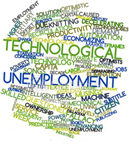
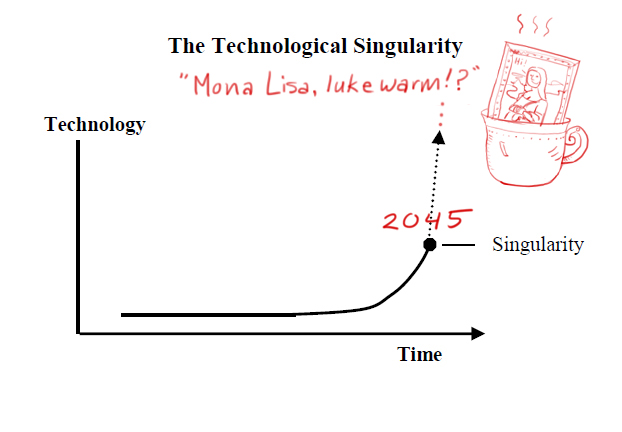
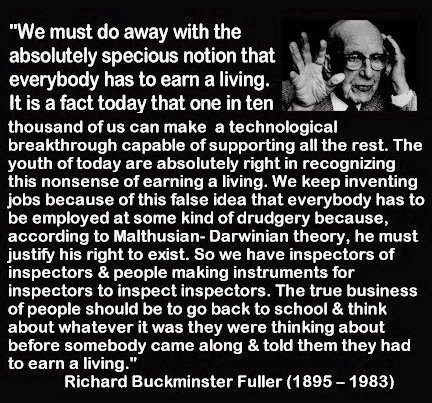
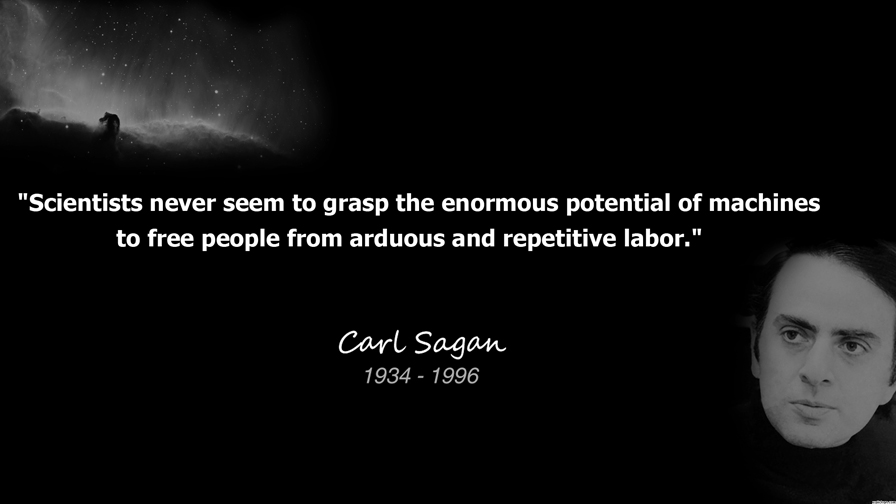

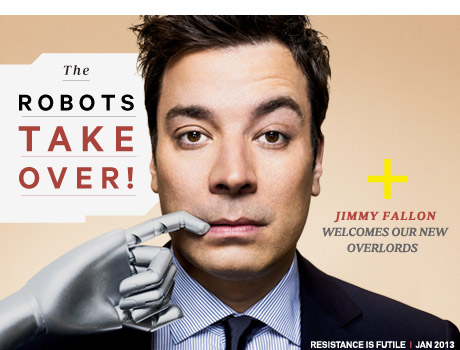

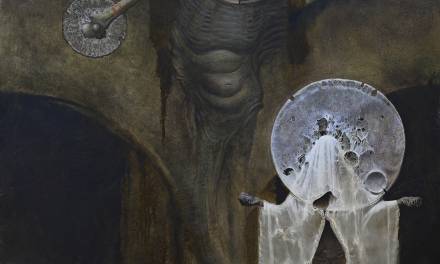


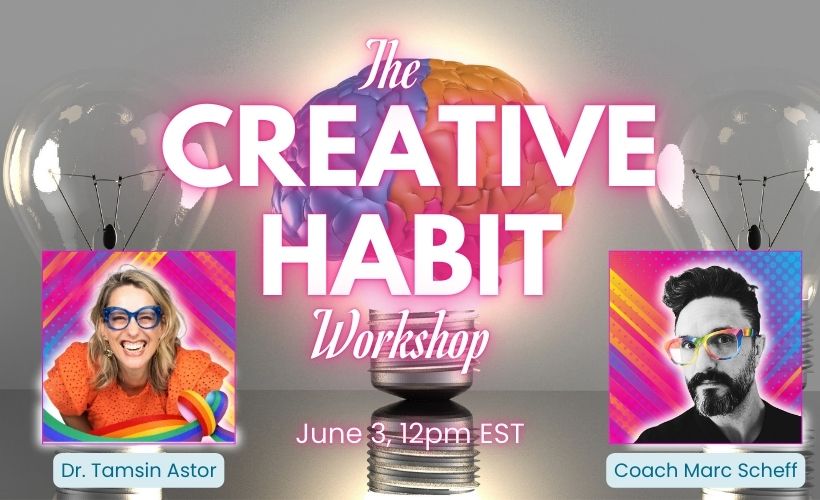
Such a depressing concept, one which I try hard to NOT think about since it is an inevitable result of advancement. One could argue that the more developed nations will sell to the less developed ones (Increasing the available consumers), but even then it can only last so long. This would in turn increase the gap between those who provide and those who demand. Many science fiction books HAVE predicted that sort of situation. However, an interesting question is sustainability. Of course the goods produced make life easier, but the company producing them can only profit as long as they can sell it, and I think it is far more likely for a complete collapse of a system then to see the system permanently changed.
Sorry, got off topic. As for the painting robot, I like me some painting time so Ill die before I let my passion be replaced by a program.
Ray- there's a German documentary called “Basic Income, A Cultural Impulse”. Apparently in Austria, Germany, and Switzerland a guaranteed basic income is being discussed to deal with Technological Unemployment and other factors. To what extent it's being discussed exactly I don't know. I find the concept of basic income fascinating. I would probably enjoy art a lot more if my basic needs were guaranteed. I don't see that happening in the US or most places any time soon. Though I am quite interested in seeing how things will play out in the coming decades.
Arthur C. Clarke for president of the world, solar system and the universe! They say that 20% of the world population uses up 80% of its resources, which means it is possible.
On the topic of that machine and how similar concepts were imagined in 'I,Robot' or 'Hugo' … have to admit I love it. The history of mankind has seen so many artists, that a few more will not make much of an impact.
How does any of this relate to the arts? The arts are instinctively known to originate from human expression. Even at the commercial level, no one would be interested in art if it wasn't a human endeavor. Machines lack the emotion to embed into a piece of art, so the viewer won't receive any in return, which is the whole point of consuming it.
As long as the monetary system exists, commerce for the arts will exist.
Things won't change as long as the monetary system is connected to compound interest. Compound interest is what makes us slaves to work. Compound interest forces economic growth. We have to produce more, exploit nature, waste more just to satisfy the hunger of compound interest.
Unconditional basic income is no illusion – it's possible as well as necessary. Necessary to protect nature and possible through the efforts of our ancestors.
organik brings up a good point about art originating and being appreciated by human expression. if you look at the question of whether or not artists will be replaced by robots, an interesting idea occurs. in the past, the times of michelangelo, or even bouguereau, what was truly appreciated was an artist's technique and ability in capturing reality (although, i'm not saying that expression and feeling were not considered). in today's culture, in the more “high” world of art, where stems the warhols and jasper johns of the world, the captured feeling, and artist's personal idea, is more commonly appreciated.
in this way, it's as if the more advanced our technology gets, the more we tend to value that expression in artworks, whereas before art could have been considered unfeeling and robotic.
WIlliam O'Connor's post about Kandinsky spoke on art vs the creation of the atom, and that adds a few pennies to this thought-pot.
Can and will the painting process be industrialized? Yes.
Will it happen in our lifetime? Probably.
Will it replace the artists? To a certain degree.
Personally I think this looks exactly like the debate about CG. Everyone expected the “old” mediums to die out and leave behind only the digital world.
Did it happen? No. Will it? Still no.
Why then?
Well, because people value the origin of things, for example:
“This painting is pretty nice. Oh, it was done by a 10-year-old? It's Amazing!”
“This other painting is beautiful! Oh, the artist just traced a photo? Well, it's so-so.”
That's why many artist dislike using references and even more tracing it.
People also adore scarcity: we really want to have something when there's not a lot of it. That's pretty much why limited-edition things exist and for the same reason the CG paintings are not sold for thousands of dollars like Traditional ones.
Paintings done by robots will not be unique nor will they be made by an amazing person. And at the current stage, as well as for many years yet to come, robots will require a lot of human/artist assistance. Right now it's basically a tracing of a photo. You could do the same thing in Painter for years already! But do many people use it? No!
But, it might (and probably will) replace, just as you said, the “routine artists”, especially when the budget is tight.
Being an artist was always hard, yet it didn't stop us. Why should it in the future? 😉
As for robots taking over art jobs, maybe. I dont know if we are a large enough part of the work force (expense) to warrant the financial investment in the development of those specific robots or software.
As for robots leaving vast numbers unemployed, we'll soon be sending the unemployed to off world colonies along with the replicants…
Or no need for income ala Star Trek.
There was a great discussion about robots and image parsing over at Gurney Journey awhile ago. Worth reading I think.
http://gurneyjourney.blogspot.com/2012/12/image-parsing.html
A similar article was on Gurney Journey somewhat recently. I feel to comment similarly to my comments there: As Quentin L. Cook once said, “Not every storm cloud brings rain,” and also a modification of this famous quote applies as well: “Video (didn't kill) the radio star.” We still listen to the radio and enjoy it, despite there being music videos. We also watch music videos and enjoy it. We still draw pictures by hand and it is desired and consumed by society. We now have infinite opportunities for new kinds of art and the enhancement or augmentation of traditional techniques thanks to technology and it is also desired and consumed.
There is always something to doubt about the future. Technology is both wonderful and advancing at super-speed. I believe overall it is enhancing our lives, not destroying opportunities. In my opinion, no one should ever cease to pursue their dreams — in any arena of life, especially art (where so many doubt one's ability to support oneself).
For an artistic individual to insulate their creative livelihood, I think that perhaps the only needful addition would be to expand one's mind about what would be valid and satisfying creative employment. For instance, I've worked with illustrators, animators, designers, and programmers at my job (and freelancers of various types) who enjoy wearing a variety of creative hats. One who can illustrate is often only a little way away from being a designer (since so much of design — in my opinion — is in understanding composition). One who designs may be well trained in illustration and enjoy pursuing commercial art on the side, etc. There's so much beauty to pursue out there that to think that one avenue is all one can or should do seems silly to me. This sentiment is also reinforced by MMA (mixed martial arts). At one time martial arts seemed focused on a practitioner devoting himself to only one style. Now martial artists study multiple styles and find great, well-rounding benefit. I think the same can apply to artists. There are far more happy places to find yourself creatively employed than the one or two everyone seems to be gunning for (remember Russell Crowe in A Beautiful Mind? The dating scene — if everyone goes for the hot blonde, everybody cancels each other out and maybe one guy gets the dame; if they each go for a different potential mate they can all, ideally, find satisfaction).
As for the notion that we need to have a society that works less (thanks to technology), I have to say that although free time is enjoyable and certainly necessary to an enjoyable and full life, what is it without work and exertion to balance it out? Who can, in any part of life, have or accomplish anything good without work? I can't. I don't believe anyone can. My marriage takes work. Raising my kids right takes a tremendous amount of work. I work hard to accomplish my design projects. Illustration is always a challenge for me — it's work. I'm so thankful I have to fight for it in life. That's how I come to appreciate it. That's the proof that I value what I have and what I've done.
This may be a case where it is sound to peer less into the shadows looming around and focus more on the bright scenery ahead, enjoying whatever journey we find given to us. Thanks for a great and though-provoking article, Eric.
This is a really thought provoking article. Thank you for taking the time to compose and share it.
I much agree with Organik's point of view. While machine might be able to paint, they do not have the sum of human experiences that we pour into our artwork when creating it. For certain aspect of high commercial art that may not mattter though.
Isn't it interesting that the last major shift, the Industrial Revolution, also spurred the Arts and Crafts movement. Why do you think there is such an interest in the handmade, home grown, home spun. Restored cars, first editions, Antique's Roadshow, period dramas, while always popular, seem ever more prevalent.
Really appreciated this read Eric. Makes me want to go back to my studio and work in my antiquated painting style.
Buisness and industries are always looking to cut expenses and increase, maintain profits but will never be able to eliminate the human factor. All companies do it but in essence are shooting themselves in the foot. How long can a buisness last when they are not only eliminating their employee's but their customer's;how many will continue or be able to afford their product's? We human's must survive and eventually market's shift and thing's change once again,product's and technology do not determine how we live but the nature of man does……beside's who would pay big money for a computer generated oil painting when you could own a original one of a kind painting by vermeer or some well known artist?
“Earl gray, luke warm” 😉
I think people will still produce and admire art and also continue to redefine art. Just because automation may make some tasks obsolete it doesn't mean that we can't also continue doing said tasks. Even if we assume that technology never replaces creative people the second half of my post is directed at the consumers of art and how our industry is affected by the people around us being displaced by automation.
Our economy is based on cyclical consumption and work for income. It seems to me that if we take out the “work for income” part it no longer works in the same way it and will need to adjust to advancing technologies. What exactly “adjusting” consists of remains to be seen. I see this as not only relevant for our industry but for the economy at large.
I agree that people won't stop being artists and others won't stop admiring the work. Scarcity is interesting. It seems to me that we as a society are moving towards higher efficiency and abundance. Today kids are growing up with open source, and free downloading of many things digital. Will they cherish scarcity as much as we do? What happens when the camera in our phones become so good that someone can take a photo of a painting on a gallery wall of their favorite artist and go home an make a hi-res print that looks great? And then upload it to the internet for anyone who missed the show. Perhaps they have an large super high res monitor on their wall that presents images in an almost indistinguishable fashion from the originals(even in 3D). Just thinking off the top of my head.
But let's assume that art jobs will never be replaced. The second half of my post is directed at the consumers of art and also how the displacement of people from non-art related jobs will affect our market. As Robert Reich said “who will buy the stuff(in this instance art stuff).
Bill- An excellent addition to the discussion. Thanks for posting. For other readers I highly recommend James Gurney's post as well.
Thanks Kiri, I agree. I don't think that technology would replace the desire to make art or the admiration we have of other artists work. Even if we make the assumption that artists will never be replaced as I tried to point out in the second half the post many non-art related jobs of the consumers of art are being challenged and it appears this is also gaining momentum. How will our economy have to change to deal with these advancements?
Brandon- thanks for bringing up the James Gurney article as well. Another interesting take on something that I think will become more relevant in the coming years.
I agree with your comment on a desire for a sense of accomplishment of working hard. I think many of us work hard on things we're interesting in. Perhaps in a future where “jobs” become increasingly obsolete our hard work can be more voluntary.
Jeffro- I agree. Businesses would seem to be shooting them selves in their own foot. It seems somewhat self defeating and perhaps short sighted. It also seems like a very strong trend.
For me, it boils down to this… If it makes you feel something, then it is working. If they can make a computer program that makes good art, then so be it. No matter where it came from it is valid. What if the computer's work was so good it actually inspired you, and made you get that “I have to draw right now” feeling, despite yourself? It's dependent on quality, though.
I keep thinking that it's comparable to nature. It's not like natural landscapes in the real world are trying to be pretty or “expressing” themselves, yet we find them beautiful.
I hope to see the day when automation frees human beings from the (sometimes) drudgery of day-to-day life. We could make a completely pure choice on what it is our lives are going to mean.
Great article!
Upheaval and societal collapse are more likely than a restructuring of the economy in a way that replaces capitalism and the upward siphoning of money. Call me a cynic, but Big Money protects Big Money. It controls things in a way that supports wealth and power. The top 1% are more likely to stay entrenched in the current dynamic than endorse changes that -gasp- allow people to get money for nothing. Look at Republican talking points over the last five decades. If the status quo turns most people into cheap, desperate labor, all the better for Big Money. Anything else is unlikely.
I dunno. It's scary, but interesting. I guess we'll see.
Regarding the other part of this article (which is only vaguely connected to this blog as a whole), I think what you're getting at is the possibility of eliminating the monetary system altogether.
This won't happen for two reasons:
1)The powers that have the most of it also happen to control it, and they will not let it go. No way.
2)Roddenberry got it wrong. Without the need for money, the majority of people will just sit around picking their noses, and society will come to a halt. Sorry, but I just don't have much faith.
What I think will end up happening is that technology will find a way to subsidize those who are unable to find work. Government and technology will form a union. Robots and software provided by the state will grow and prepare your food, build affordable housing, provide free transportation, mend your wounds, etc. All of this will still ride on the back of the monetary system between the engineers/scientists, technology corporations, and the elected officials. There will always be those who want more than their neighbor, and the opportunity will always be there for them if they choose to pursue one of these fields. Everyone else will be subsidized, including artists/musicians.
I'm optimistic, but I can say with conviction that it will get worse before it gets better due to the inevitable growing pains and confusion that will occur.
Organik- I would for the most part agree with point 1.
On point 2 it appears you're concerned with human motivation. There are four decades of research into human behavior and motivation and it's presented in a book called “Drive: The Surprising Truth About What Motivates Us” by Dan Pink. People, it appears, are not inherently lazy, picking noses may be a different story. However one sure way to decrease intrinsic motivation is the use of rewards (grades, gold stars, and yes money is a form of reward) Repeated in study after study show that rewarding people makes them less interested in that task. However, rewards seem to work great on repetitive, menial task. Unfortunately, these repetitive tasks are often the first to get automated(I think it's obvious that they are definitely not the last). If you're concerned about lazy people I think it helps to be familiar with the science and to look at the conditions that create unmotivated people and deal with it at the root.
“One of the most thoroughly researched findings in social psychology is that the more you reward someone for doing something, the less interest that person will tend to have in whatever he or she was rewarded to do.” ~Alfie Kohn
As for what the economy will look like in the distant future, who's to say? We appear to be moving towards ever increasing efficiency, decentralization, and abundance. Though I admit there are no guarantees for what Michio Kaku would call a “Type 1” civilization. Whatever our goals are as a society I don't think we lack the means to achieve them.
“What hopes and fears does the scientific method imply for mankind? I do not think that this is the right way to put the question. Whatever this tool in the hand of man will produce depends entirely on the nature of the goals alive in this mankind.
Once these goals exist, the scientific method furnishes means to realize them. Yet it cannot furnish the very goals. The scientific method itself would not have led anywhere, it would not even have been born without a passionate striving for clear understanding.
Perfection of means and confusion of goals seem–in my opinion-to characterize our age. If we desire sincerely and passionately the safety, the welfare and the free development of the talents of all men, we shall not be in want of the means to approach such a state. Even if only a small part of mankind strives for such goals, their superiority will prove itself in the long run.
-Albert. Einstein
Excerpt “The Common Language of Science”
I really enjoyed this, thanks for writing it. I think one of the biggest problems with having this discussion is that people mistake wealth for money when they are not at all the same thing. Wealth is a much larger concept that comprises everything from knowledge and technology to leisure time and access to the things that support life. When you think of it in that way, nobody can refute that automation has produced a wealthier society, so that even our poor usually have access to food, transportation, medical care, etc. I don't see any reason why that same idea couldn't apply to artists, since artistic appeal seems to be something that has no upper limit. Sure, the idea of an art director with a program that paints pictures is alarming on its own, but what happens when an artist gets that same program? What kinds of paintings could you paint with a brush that painted people, trees, mountains, alien life, and more, all at your command? A trained artist, empowered a way so that he/she only had to adjust details and the expression of ideas, will still stand out above the average Joe in the same way that a fine restaurant stands out over a can of Spaghettio's. At least that's what the eternal optimist in me says.
spot on Christopher.
You make some great points, as do all the authors, but they all make the same assumption: that 'progress' and technical advancement are both unlimited and beneficent.
For starters, in many ways technological advancement has been slowing down.
Here is one writer's take:
http://scottlocklin.wordpress.com/2009/09/01/myths-of-technological-progress/
Let’s look at aerospace. The SR-71 was designed in 1959. It took about two years to get the thing deployed, and it remains a faster jet than the F-22, which cost a lot more and took a lot longer to develope—first design was in 1986, first deployment in 1997
Second, we assume technology will 'make things better' yet we' just come out of the bloodiest century mankind has ever known.
Our human nature hasn't changed, in fact, the popularization (and some would say misuse) of some 'scientific' ideas have made it worse.
So while we might have machines that can create paintings we might also have machines and bioweapons to take human life on a scale incomprehensible to our ancestors.
My Pen Name: “the bloodiest century mankind has ever known”? How do you back up such a statement? Would you quantify it by total deaths or by deaths per capita? Were those deaths a result of improved technology or totalitarian ideologies (if the latter, how do you argue that the deaths wouldn't have happened anyway)? That's an interesting argument, but a pretty extreme one that you've got to back up if you're going to make it.
Anything done by the human hand with the human spirit behind it will, in the end, be more desirable and impressive than something done by a sterile machine. Humanity is in the brushstrokes and inspired color choices. Humanity is in the mistakes. Only paintings done with the human creativity will, ultimately, 'connect' with other humans.
We illustrators have nothing to fear. Our goal is still the same: produce the best art we can on deadline. Many art directors out there will *always* choose a painting made by a human over one made by a machine. I simply cannot see, for example, Jon Schindehette or Irene Gallo choosing a machine-made image over an illustrator.
There may be some small companies, and a very few large ones, that will go with the machine, but if those companies are willing to do that, they likely wouldn't treat their illustrators well anyhow.
As for the rest, I tend to agree with the Richard Buckminster Fuller quote.
My Pen name- Technology is a double edged blade and cuts both ways. I've tried to show that in my essay. ie it can benefit society at large if applied appropriately or it can displace you from your job, definitely not a benefit for most. It all depends on how it's applied. What I'm also trying to point out is that larger structural changes may need to happen to deal with our labor for income economy that may eventually become obsolete as we move forward.
Michael- Humans are inspired by many things. Many of them are not man made ie a waterfall, aumtumn sunsets, crashing waves etc. We also spend millions of dollars on pieces of art that others may find absolutely horrid.
As I tried to point out in the second half of my post even if we assume that the artists are never ever affected or displaced by such emerging technologies there appears to be a strong trend of AI and automation displacing jobs all around us at an accelerating rate. I'm not sure if the creative sector can maintain an entire economy based on cyclical consumption and jobs for income. As Robert Reich had said “who's going to buy all the stuff?” In this case, art related stuff.
“Who's going to buy all the stuff?” That depends on the 'stuff'. If you look at the recent 'recession' and what industries did well and what industries didn't, you'll see that the entertainment industry (movies, video games, etc.) fared better than most. Humans want their bread and circuses. Art-related stuff falls under the 'bread and circuses' category. While a family might cut expensive foods from their budget when times are tough, the last things that get cut tend to be Netflix, internet, television, video games.
But it seems to me that what you're driving at is a total economic collapse where the majority of the population have no money to buy anything. Many things can happen between now and that point to keep that from happening. As you've pointed out, certain countries are tossing around the idea of a basic living wage. More ideas will spring forth in the next few years. Even more in the next few decades.
I applaud your desire to keep abreast of this, but humbly suggest there's more than a bit of doomsday speculation in it… emphasis on speculation.
No, people really need to grasp that soon (only a few decades), EVERYTHING will be done better by the machines, including art. The machines won't stay “sterile” much longer. They still are now, but they won't be for much longer.
That's not to say we humans won't see value in something just because we know it was dong by a human, but that value will be insignificant to the impact the machines have on our economy. For example, though my background is software, I've become an artisan-blacksmith in the last few years. People love the fact that something I make out of steel on the anvil was done by the hand of someone they know, rather than spit out by a mass produced machine in a factory. But what they are willing to PAY for that, is insignificant compared to all the things they really want in life, like food, big homes, health, job security, new iPhones, etc. Way down at the bottom of their “need” list is that cool hand forged item I would make for them. All art will remain that way – way down at the bottom of the “need” list. Only the few best artists are able to make a living with art, everyone else, does it by starving or getting someone else to fund them, like a spouse with a real job. In the near future, those “only the best” will all be machines.
As such, the bulk of all work will go to the machines. Pop Music will be created by the machines. Pop films will be created by the machines. All the run of the mill art used in advertisements, and architecture will be created by the machines. Then, way down on the “need” list, will be the “cool stuff” made by some human – who can no longer get enough money for their work to put food on the table.
The answer to this, which I'll talk about in another post, is a Basic Income Guarantee. People need to come to grips with the fact that as machines take over the work, and increasing amounts of wealth is being created by capital investments, instead of by human labor, we will just switch to a society where people are no longer expected to “work” for a living. We will no longer expect people to “contribute” to society, other than by following the laws and being a good citizen, and being full time consumers. That will be our contribution and our “job” of the future. Everyone will receive the same cash payout from their share of the economy, and can spend it anyway they want.
If they want to be an artist, and not have a big home, and all the latest gadgets, they can be a full time artist, and not worry about starving. They can sell their work, even if it doesn't make much money for them, because with the BIG they will have enough to have a nice and safe and happy life.
Anyone that wants to work hard in a more profitable line of work, can do that as well, and get super rich, and have big homes and fancy cars and whatever they want. But everyone is taxed, to support the Basic Income payments, so no matter how rich and successful one gets, they must share a portion of their success with all of society though the Basic Income Guarantee tax.
Having the machines take over our work is not a bad thing, it's what we have always wanted to happen. When the machines take over our work, we all get to retire. No human every has to work again. But to make society function in this new world, we need the Basic Income Guarantee set up.
Great Article.
On the art issue, yes, one day before long, even art will be done better by the machines. Nothing is safe.
And yes, soon, all jobs will be basically gone, but for now, the problem is highly disruptive to society, and needs to be fixed. The disruption shows up as income inequality. This is because as technology advances (all technology – not just automation), our economy assigns increasingly higher values to the technology, and increasingly lower values to the humans. Companies used to have a standard mantra that their “people” were their most important asset. This was once true, because not only were the people, the core of the business, but most the business process and skills were hidden inside the brains of the humans. But now, that's no longer true. Most business process have been removed from the silly humans, and embed in the computers. The core of most business today, are their IT systems, not “their people”. Add that to their factories, their patents, their proprietary technologies, their customer base, their brand name reputation, and humans just aren't so big a factor any more. Most human workers are disposable monkeys in most businesses today. And it's only going to get a lot worse.
The net result, is that our total GNP wealth is created more by the capital assets of a business, and less by their workers. In time, this will shift almost completely to the capitalistic assets as the machines take over all the work from the humans.
This is NOT a BAD THING. It's a good thing. It's what we have spent the last 40,000 years of human civilization working to create! The end of work! This is something to celebrate, not to fear. It's the day all human get to retire permanently.
It shouldn't be called the “Singularity”, it should be called Retirement Day!
The problem, is that our society isn't correctly structured to cope with the transition we are going through. But the change is trivially simple, once people understand it. All we have to do to fix everything, and speed our progress to this day of retirement, is implement a Basic Income Guarantee. It will start out small, but keep growing as we get closer to retirement day.
The problem technology is creating, is not job displacement, but wealth inequity. The wealth is flowing towards the top investors, instead of being shared with “workers”. This happens, because as wealth production shifts from human labor, to capital, we suffer the classic problems of capital wealth – which is the fact that it tends to be a winner take all game. The best investors, end up owning everything. These “job creators” really are the job creators, but sadly, their investments are going to create “jobs” for their machines instead of humans. When they invest in machines, they get to keep all the profits. When they invest in people, they are forced to share the profits with the people. So, naturally, they are investing everything they can, in machines, and getting rid of the people, as fast as they can. But this is not bad. As long as we force them to share their success by helping to support everyone though the BIG taxes and BIG payments to everyone.
As the jobs go away, they are no longer doing anything for “us”. We see stagnant or dropping wages, and poor employment numbers and a shrinking middle class. All the wealth is moving to the top.
If we tax all businesses and income, evenly (flat percent of profits), and then use that to fund a Basic Income Guarantee, then everyone gets to share a little bit of the success of every business.
This caps the growing wealth inequality. With a BIG no one should care, if big oil is making tons of profits, because a fixed percent of that ends up in all our pockets. No one should care if a private company like Walmart, is making billions in profits, because a fixed percentage of their success, ends up back in our pockets. In effect, a Basic Income Guaranteeing, makes every Citizen a part owner, of every business operating in their country. That is, every citizen, gets to share, part of the wealth, being created, by every business that is contributing to their countries GNP.
As we approach the day that no one can find good work, we will all get a steady income from our “indirect” “investments” in every business in our nation. Anyone that wants, can still make private investments, and if they choose wisely, will make themselves lots of money – but like everyone generating wealth, will have to share a percentage with everyone.
The Basic Income Guarantee can and should, in time, replace all forms of welfare. Our governments should get out of the welfare business, except, in it's role of taxing, and distributing, BIG payments. Minimum wage should be elimination in time. Social Security should be eliminated. All government housing, or food stamp programs should be eliminated. The progressive income tax should be replaced with a flat (fixed percent) income tax. With large enough BIG payments, unions are no longer needed because workers that aren't being a treated fairly, and given a fair wage for the work, will just quit. As long as companies still need humans, they will have to pay them a fair wage and safe working environments, just to get them to still work.
This is the one and only government program we need, to fix all the problems of technological unemployment, and take us to the day, where everyone gets to retire for good, and spend their life doing whatever makes them happy.
@Sam NielsonJanuary 21, 2013 at 1:09 PM
The carnage of WWI alone is unlike any war seen before it, since it was the first time mass killing machines (like the machine gun) were deployed on a large scale.
Then we move to civilian bombing during WWII where 18 men in a plane could wipe out entire towns and eventually, cities. WWI's aftermath also gave us the first modern genocide – Done in the name of progress- the Armenian genocide.
Civilian bombing is entirely new. certainly making war on civilians was done before – it was common to massacre an entire town if they held out during a siege – but that's a much harder thing to do with when the only weapon is a sword.
During the Napoleonic wars if you were an officer caught by the enemy, you could give your parole, return to your country voluntarily and you would not fight again until 'traded' for another POW. Certainly it was abused, but is it even imaginable today?
I don't think i have to tell you this.
Ideology indeed made a difference. and I yes, I think a lot more people would have been alive in Communist countries were it not for five year plans and great leaps forward. If we are just biological machines as many claim now, without souls then there should be no difference 'depleting' us than any other biological machine like a plant or ant.
@Curt WelchJanuary 21, 2013 at 7:32 PM
No, people really need to grasp that soon (only a few decades), EVERYTHING will be done better by the machines,
This has been called by one acerbic writer 'The rapture of the nerds” – but its not new really, it's the latest utopian religion. In the 18th century it was 'rational thinking and 'reason' (which brought us the reign of terror since anyone who disagreed was impeding 'progress'
Christof Koch: ” Consider this sobering lesson: the roundworm Caenorhabditis elegans is a tiny creature whose brain has 302 nerve cells. Back in 1986, scientists used electron microscopy to painstakingly map its roughly 6000 chemical synapses and its complete wiring diagram. Yet more than two decades later, there is still no working model of how this minimal nervous system functions.
Now scale that up to a human brain with its 100 billion or so neurons and a couple hundred trillion synapses. Tracing all those synapses one by one is close to impossible, and it is not even clear whether it would be particularly useful, because the brain is astoundingly plastic, and the connection strengths of synapses are in constant flux. Simulating such a gigantic neural network model in the hope of seeing consciousness emerge, with millions of parameters whose values are only vaguely known, will not happen in the foreseeable future.”
WHere are the great technological leaps of the past? The human speed record was set during the lunar missions. That was close to 50 years ago. we have not surpassed it.
please refer the essay above 'the myth of technological advancement' there were great technological leaps in the 18th -early 20th centuries but the pace has been slowing drastically.
@EricFortuneJanuary 21, 2013 at 3:23 PM
Please read up on some of skeptics of this 'movement' which is more of a secular religion and, in my opinion, a fanatical one.
Prudence is usually the first casualty of such movements, as evidenced by many comments here.
But it isn't just silly, it's also dangerous as most utopian thinking is. “science will save us, because it will create everything, even machines that will think out our problems for us…. science will save us”.
It also conflates the mind, brain, conscience, spirit. I don't think its an accident that many of the most fanatical advocates of this umm 'science' don't seem to have drunk from other wells (philosophy, theology, history, to name a few).
As John Derbyshire says Without knowing what minds are, how do we even know that better ones are possible?
How do you know what my conscience is? How do you know or will ever know what I see?
(I don't mean you personally, but some of the comments here)
as for restructuring the economy and labor force. Well that's been overdue for sometime, technology or not… was it bill mckibben who said that ” a man who gets in a car accident on the way to see his divorce lawyer is good for the economy'
We still base our economy on suburanizing farmland and wilderness (thus the new housing starts economic indicator) – which has been a substitute for our self-imposed destruction of our manufacturing industry.
So what used to double every other year is now doubling every year and a half.
Classic hockey stick chart.
You still didn't answer any of my questions. Yes, the dynamics of the world wars were different. That doesn't mean, and you cannot prove, that there were more by deaths per capita in this century due to war than any other. We don't even have historical records sufficient to back up such a statement. And the “hardness” of mass killings and genocide has hardly been a deterrent in pre-20th century wars/invasions. You might be able to argue that the dangerous ideologies of the 20th century were driven by mass production technology, though I wouldn't be surprised if fewer people per capita died of starvation in this century than war because of that same technology.
Like Eric said, technology is a two-edged sword for sure, but it doesn't do anyone any good to overstate the evil and understate the good just to make an argument.
Of course, I am still waiting for my flying car, mile high skyscrapers, colonies on the moon and mars….
Pick up any 1950s 'science' magazine and look at the predictions.. how many have come true?
Of course many things we didn't anticipate or even conceive of have came true as well (home pcs, internet), but the likelihood of these predictions panning out is, well, not very likely.
@Sam NielsonJanuary 22, 2013 at 1:04 PM
That doesn't mean, and you cannot prove, that there were more by deaths per capita in this century due to war than any other.
Who said I did? I acknowledge that its likely more people have died of disease, especially in childhood – the Spanish flu epidemic for example is on par w/ WWI.
I am talking about sheer scale of destruction and the ease of which we can destroy. I think we can agree that if two armies meet with guns a lot more people are likely to get killed than if they met with swords…
I am also pointing to acts like say, the fire bombing in Dresden, Tokyo, or nuking Hiroshima, or the genocide of Armenians (which was more messy for sure) or the collective starvation of Ukrainians. You could say, yeah its been done before – and yes, human nature has not changed – we are still capable of great evil (most of the time in the name 'good') but now we have weapons that make it easier to mass kill people. I was a leader that wanted to put another tribe to sword it would take a 'lot of work' if i was a leader that wanted to, say, carpet bomb Serbia it just takes pushing a few buttons.
In short, we have done nothing to improve ourselves as human beings, I would argue that we're worse today than even a few decades ago. Technology is not going to 'save' us.
And the “hardness” of mass killings and genocide has hardly been a deterrent in pre-20th century wars/invasions.
who said it was?
you might be able to argue that the dangerous ideologies of the 20th century were driven by mass production technology,
no, i argued that the ideologies directly resulted in the de-humanization of human beings and rationalizations of 'progress'
Ah, now I see that you're arguing potential for evil rather more than anything else. I will agree that's the Pandora's box of technology: open it up and you can feed billions or kill them. Personally, I'm a fan of taking the risk.
Computing power is doubling. See “Moore's Law”
“In 1965, Gordon E. Moore, the co-founder of Intel
Corporation, observed that, as a result of constant innovation,
the number of transistors on a silicon chip roughly
doubled at a consistent pace. Moore speculated that the
rate of growth would continue into the foreseeable future,
and in the years since, his forecast has proven to be correct.
Moore’s observation initially related to the nuts and
bolts of how chips are fabricated, but over time it has
evolved into a broader rule of thumb that gives us a useful
framework for thinking about how our ability to manipulate
and process information increases over time. This rule
of thumb has become known as Moore’s Law,*” pg 29 “Lights in the Tunnel” by Martin Ford, a book on Technological Unemployment and exponential growth. Also linked in the original post. The graphs used are also from his book.
Another book is “The End of Work” by Jeremy Rifkin also linked above. A third book “Race Against the Machines” is also linked above and is authored by two award winning researchers at MIT. Both books are about technological unemployment. I've quoted what I thought were the most relevant parts for my post. I've provided links to all my sources including books, TED Talks, a documentary, Discussion Panels, Interviews, articles and other relevant information for anyone interested in a fuller understanding. Another person synonymous with exponential growth and The Singularity is Ray Kurzweil for anyone interested in learning more.
The main point of my post is to point out a trend of technology displacing people from work in many sectors, potentially our own. Here's another robust example
-article “Foxconn displaces workers with 1Million robots” http://news.xinhuanet.com/english2010/china/2011-07/30/c_131018764.htm
The post was not about just any new technologies. However, here are a few technologies I personally thought were kind of cool. Note the “driverless car” and the implications there as well.
“27 Science Fictions That Became Science Facts In 2012”
http://myscienceacademy.org/2013/01/03/27-science-fictions-that-became-science-facts-in-2012/
I'm not trying to present a doomsday speculation. I'm suggesting that larger structural changes may need to be made with how our economy works. Applying automation in a humane way could free many people from repetitive drudge work and long hours of labor while maintaining high productivity and could also be used to meet people's basic needs. I personally think that sounds rather nice.
“I am talking about sheer scale of destruction and the ease of which we can destroy. I think we can agree that if two armies meet with guns a lot more people are likely to get killed than if they met with swords…”
Perhaps. But awareness of the dangers and damage these kinds of weapons can cause are also heightened. It might be worth mentioning that since the invention of the atom bomb only two have ever been used, and even that is by most thought of as a shameful thing. Of course, I'm not saying that means it never will be used again. But I'd like to think that as the power of our weapons increases, the less likely we are to use them.
Just as an aside, a good SF author who writes and speculates a lot about the singularity is Vernor Vinge. His book A Fire Upon the Deep is really great. 🙂
Whatever our goals are as a society I don't think we lack the means to achieve them.
First of all who is “we”? Second: Most developments in medicine, technology etc are in the hands of big corporations. They decide what we get and what not. So in the end most of the shifting in society is fueled by capitalistic or other non-altruistic and non-humain goals.
Just what I found to be the truth.
Of course there are movements and NGO's that do something in this huge mess of civilization, for the good, but who wins when it comes to worldchanging decisions?
For example: AI is kinda cool and useful, but I still tend to fear Strong AI (check on wiki), because in the end, the ones who will use it will be the big corporations for their capitalistic expansion. I don't think it will bring any good.
@Art: No matter what, no machine will ever be able to do what human artists do 🙂